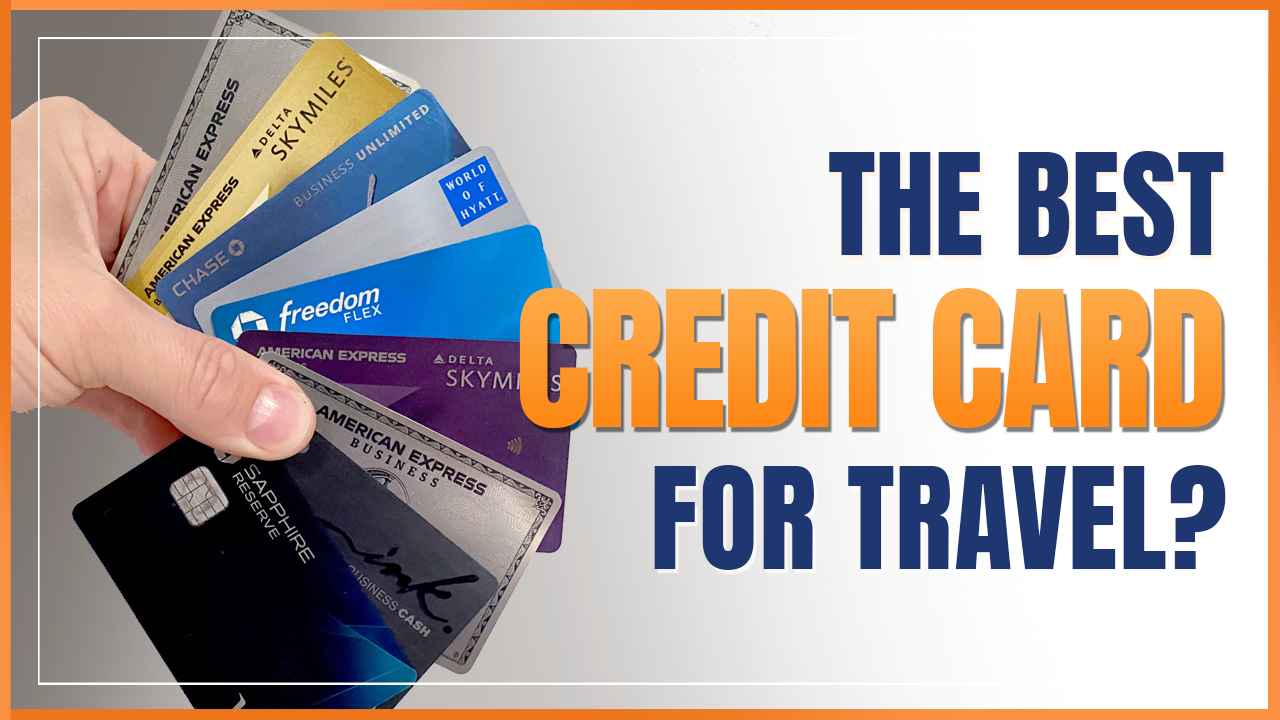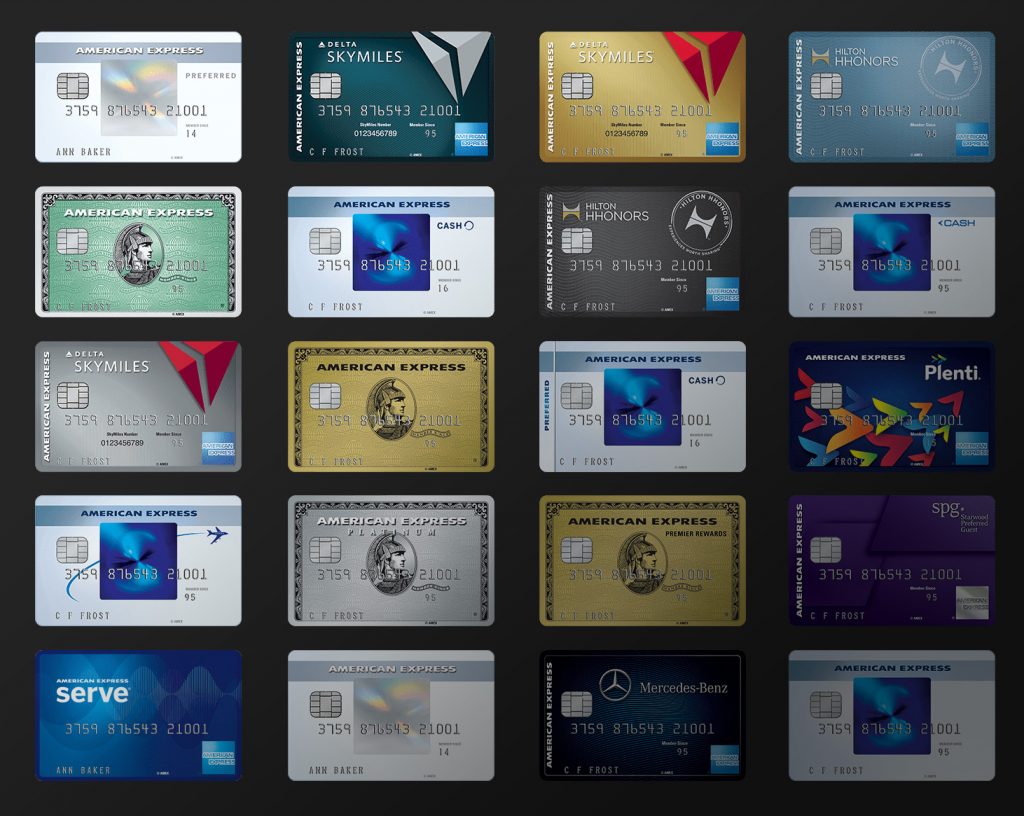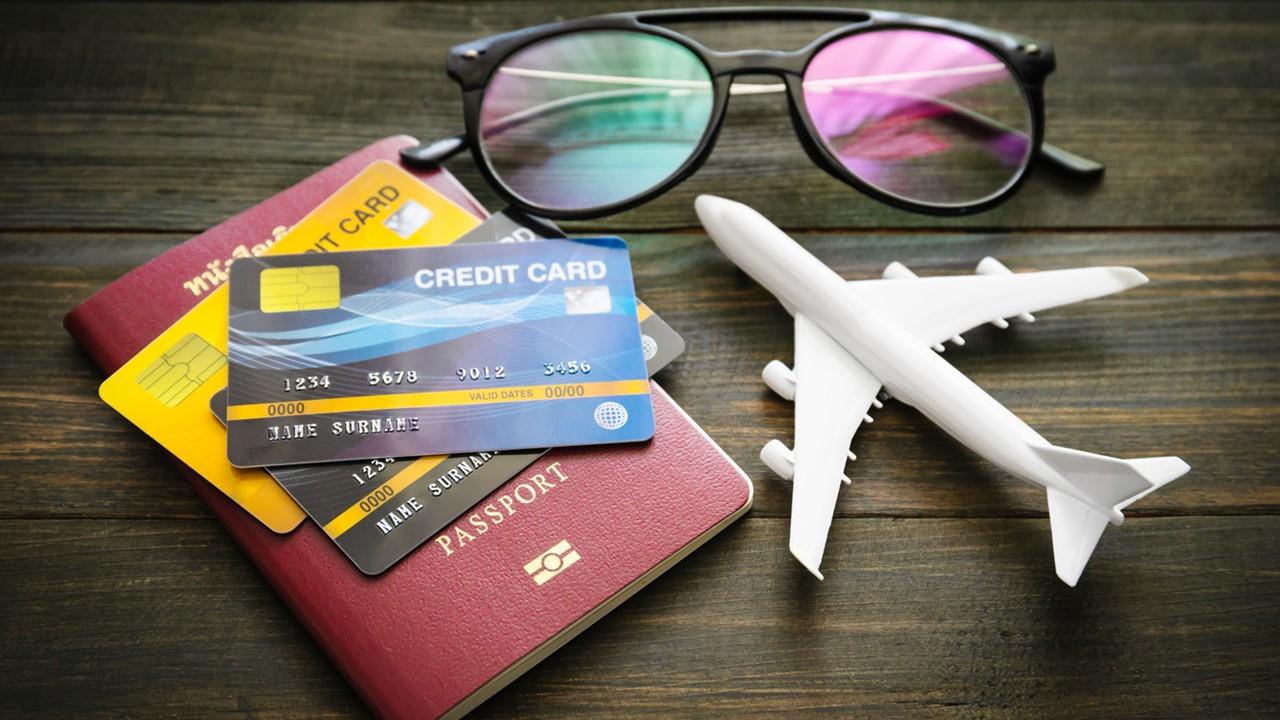
How to Choose the Best Travel Credit Card
There are many travel rewards cards available, and many factors will affect what's 'best' for you (Updated Nov 2021)
When choosing a travel credit card, you should consider how often you travel, and how flexible you are willing to be. Also, think about how valuable hotel or airline perks might be to you. This article about how to choose the right travel credit card encourages you to prioritize the following 3 factors:
1. Sign-up bonus: Most cards offer additional perks (usually points/miles) when you meet a preset initial spending threshold within the first few months of use.
2. Earning rate: How much you earn in rewards for each dollar you spend using the card. The higher the earning rate, the better!
3. Getting rewards you're most likely to benefit from and use. There's no point using a card if you're unlikely to use its benefits!
When considering a travel credit card, the first thing you should ask yourself is "Should I get one at all?" Generally, you need to be a frequent traveler to see the most benefit. Otherwise, a cash-back card may be a better option for you.

Branded or General Travel Credit Cards?
There are two basic types of travel credit cards offered: general travel cards, and co-branded cards.
Co-Branded Travel Credit Cards
These are where the name of an airline or hotel chain is displayed on the card, such as the Delta SkyMiles Reserve Business American Express Card or Marriott Bonvoy Brilliant American Express Card. You can only redeem the rewards you have earned with that brand, which can sometimes limit your flexibility. For example, if your co-branded airline partner does not have award seats available on the flight you desire on the date you wish, then you are out of luck. However, on the plus side, co-branded cards often offer hotel- and airline-specific perks that are not available on general travel cards.
General Travel Credit Cards
General travel cards aren't tied to any particular airline or hotel, and as such they offer greater flexibility. The Capital One Venture Rewards Credit card and Chase Sapphire Preferred are two popular general travel cards.
General travel cards earn points, sometimes called "miles", but they're really points that can be used for any travel expense. The big benefit is not being restricted to using one airline or hotel brand, although the perks generally aren't as good or comprehensive as a travel credit card that's co-branded.
What benefits do you get from a general travel credit card?
General travel cards are issued by banks such as Chase, Citi, and Capital One. As mentioned, they carry the bank's name only, and they're not tied to any particular airline or hotel group. These cards allow you to earn points on every purchase, usually earning 1 to 2 points per $1 spent. Sometimes, additional points can be earned in specific categories as a bonus.
General travel card issuers often offer big sign-up bonuses to entice you to signup. These are also known as "welcome Offers", which can be tens of thousands of points/miles. They are usually offered only to new applicants.
Each major card issuer (the banks) use different terminology to describe their method for earning points. For example, American Express calls its program Membership Rewards, Chase has Ultimate Rewards, and Citi uses ThankYou Points. FlexPerks is offered by U.S. Bank and Wells Fargo. Bank of America interestingly offers points without a fancy name. Finally, the travel credit cards from Capital One, Barclays and Discover all call their points "miles".
The number of points you earn per dollar spent, and the value of those points will vary from bank to bank, which sometimes makes it confusing to compare.
What can you do with the points? You may be able to redeem your points in a variety of ways, depending on which card you have. Here's some examples:
Booking travel. This option allows you to use your points to pay for travel booked via the issuer's website, just like using an online travel site like Expedia. If points were worth one cent each when redeemed in this manner, you could book a $400 flight on the portal of the card issuer and pay with 40,000 points
Statement credit. You can use your points to credit your credit card statement and 'pay for' your travel that way. The advantage is that travel arrangements can be made however you like. You charge the amount to your credit card, and after the charge appears on your account you can apply the points to credit your statement.
Transferring to partners. Some card issuers allow you to transfer points to airlines or hotel brands that you have a loyalty account with.
Cash back. This option would be a last resort to burn off rewards if you don't intend to travel. Why? The value per point will usually be very low, so its not the best way to maximize your benefits.
What Other Benefits do General Travel Credit Cards Include?
Aside from earning points, many general travel credit cards offer other benefits and perks related to travel. These include:
Travel credit. This allows you to receive reimbursements for certain travel expenses. Top travel credit cards sometimes offer travel credit worth hundreds of dollars per year.
Trusted traveler reimbursement. Some travel credit cards cover the application fee for TSA Pre-check and Global Entry - handy if you haven't yet applied for those programs, but not so much if you already have them. These TSA programs allow you to pass through security faster on domestic flights, and through customs and immigration faster on International flights when returning to the USA.
Airport lounge access. There are thousands of airport lounges around the world that operate independently from airlines, and many general travel cards allow access to these lounges. Alternatively, they give you access to a lounge access membership such as Priority Pass.
Primary Car Rental Insurance. CDW / LDW can be very expensive, so a big benefit of some general travel credit cards is the primary insurance coverage when you rent a car using the credit card.

What benefits do you get from an airline travel credit card?
With every purchase, airline credit cards earn you "miles". You will typically earn 1 mile for every dollar you spend, but the rate on purchases made with that specific airline is higher (2 or more miles per $1).
Some airline cards also offer extra miles for purchases in other categories such as restaurants and car rental agencies. These miles are added to your frequent-flyer account, along with any other points you earn from flying the airline. You can then redeem them for free flights on that airline or one of their alliance partners.
Co-branded airline cards also often offer sign-up bonuses or welcome offers. What really makes them stand out is the valuable perks that they offer. Some cards offer a checked-bag benefit that can often cover the annual fee. The following are common perks offered by airline cards:
Free checked bags This usually applies to your first checked bag and a companion traveling with you. This perk may also be extended to additional people by some cards. For example, the Delta Amex cards allow you to waive the checked bag fee for up to nine passengers on the same booking! Higher-end cards with higher annual fees may allow you to check two bags for free.
Priority boarding. Co-branded airline credit card holders often get to board the plane first, after elite frequent flyers but before the general public. This allows you to settle in quickly, and nab that all important overhead bin space for your carry-on bags.
In-flight discounts. Not the sexiest perk, but it could add up if you're a frequent flyer. For example, you might be eligible for 25% savings on food and beverage costs on board, or even get free Wi-Fi.
Airport lounge access. Many high-end cards include access to the airline's airport lounges. This allows you to get away from the chaos of the terminal, while also enjoying a complimentary glass of wine and some snacks. Note that this benefit tends to be with the cards with higher annual fees. The more basic airline credit cards may only offer limited or discounted access to lounges, and others give no access at all.
Companion fares. You can bring someone along for a reduced price (or sometimes even for free) if you purchase a full-price ticket. Essentially, it's like a buy one, get one free. Many airlines offer this perk once a year when you reach a required level of spending on the card.
Elite status. Some airlines give you a higher level of elite status simply by owning the card, which can be a very valuable benefit with a variety of perks.
American, United, Delta, and Southwest offer a variety of credit cards. You have to weigh the cost of the annual fee vs the perks and rewards that are included.
How to Choose an Airline Credit Card
If you're not sure which airline card to choose, it mostly depends on which airline you're likely to fly the most. This is heavily affected by your location. For example, Alaska Airlines has a great credit card but its routes are mainly on the West Coast. It wouldn't be a good choice for those who live on the East coast of the States.
If a single airline dominates your local airport (a hub), you will likely be flying that airline most (or all) the time. Delta is, for instance, the dominant force in Minneapolis-St. Paul or Salt Lake City. United controls the majority of flights to Newark and Washington Dulles. American is the dominant airline in Charlotte and Dallas-Fort Worth. If you live in a large or middle-sized market that has good service from a variety of airlines (like Las Vegas), you'll have more cards (and airlines) to choose from.
What benefits do you get from a hotel travel credit card?
Points are earned with every purchase on a hotel credit card. You will typically earn more points per dollar if you purchase from a co-brand partner. Some cards also offer bonus points in certain categories. Although hotel cards are arguably more valuable than airline miles, each point is worth less than an airline mile. Your points can be redeemed for free stays.
Although hotel cards often offer a signup bonus, ongoing perks are just as important. The following are some common perks for hotel credit cards:
Free nights. This perk is available on several cards, and can be used to offset the annual fee. Either you get it every year automatically or you can unlock it by spending a certain sum within one year. It is added to the points you earn from your spending.
Upgrades: Cardholders are eligible for room upgrades automatically when they are available, or sometimes complementary or discounted amenities like drinks, meals or spa packages.
Early check-in/late check-out. Let's face it, nobody likes to wait in the lobby for 3 o’clock to check-in. And no one likes to have to leave their hotel room at 11:30 a.m. when their flight isn't until the evening. That's why the late-checkout perk is particularly valuable.
Improved status: Just like airlines have levels of status, hotel chains do too, and cards often allow you to jump up automatically to a higher level.

How to Choose a Hotel Credit Card
You will need to choose which hotel group receives your business if you opt for the hotel-card route. Because hotels aren't as concentrated as airlines, there will be a lot of choices for you if you travel primarily to major cities. There are many nationally recognized hotel brands. These range from budget inns and luxury resorts. However, they are often just units within a larger company. The card can unlocks benefits throughout the entire group.
Marriott includes, among others, its namesake properties and nearly 30 brands such as Courtyard, Fairfield Inn, Sheraton and W.
Hyatt includes well-known brands including Hyatt Place, Hyatt House, Hyatt Regency, and Grand Hyatt.
DoubleTree, Embassy Suites and Hampton Inn are all part of the Hilton family.
InterContinental also includes Candlewood, Staybridge, Crowne Plaza, and Holiday Inn.
Wyndham and Choice share more than 15 budget-oriented and mid-tier brands.
How to Compare Travel Credit Cards
There is no travel rewards credit card that will offer absolutely everything you want or need. If you expect a high reward rate, generous sign-up bonus and top-notch perks, then you will be disappointed. So you have to evaluate what's most important to you to choose the right card for you based on the following aspects:
Annual fee
The vast majority of the top travel cards have an annual fee. Travel cards typically have annual fees in the $100-$200 range. For premium cards that offer more perks, annual fees will often be $450 or higher. To make sure the fee is worth it, it's essential to weigh the benefits and perks that you will get.
Are there any good cards that don't require an annual fee? Fortunately, yes! As you may expect, no-fee cards earn lower rewards, have a smaller sign-up bonus, and don't get as many perks.
Rewards rate
You can think of rewards in terms of earning and burning (accumulating points and then using them).
The earn rate refers to how many points or miles you get for every dollar spent. Flat-rate rewards are offered by some general travel cards. This means that you receive the same rate for all purchases -- 1.5 points per $1 or 2 miles per $1, respectively. Other cards, including co-branded ones, offer a base rate at 1 point per $1, but then you pay a higher rate for certain categories like hotel stays, airline tickets, general travel expenses, or meals out.
The value of the points or miles you receive when you redeem (use) them is called the burn rate. Industry averages are about 1 cent per mile or point. Some cards, especially hotel cards, have a lower value per point on "burn", but more points per dollar on earning.
Don't look at just the numbers when comparing rewards rates. Take a look at the categories that these numbers are applicable and choose a card that suits your spending habits. Although 5X points per dollar sounds great, if they are only for purchases at office supply stores and you don’t spend much money on office supplies, you would be getting poor value.
Sign-up bonus
Travel cards as a group often have the largest sign-up bonuses. You can earn tens of thousands of points by spending a certain amount within the first few months. However, there are more factors to consider than how many miles or points you earn when comparing sign-up bonuses. It is important to consider how much you must spend in order to receive the bonus. Cash-back credit cards typically require spending of $500 to $1,000 over three months in order to unlock a bonus. Travel cards, however, often have thresholds between $3,000 and $5,000. Sometimes higher.
NOTE: Sign-up bonuses are not a way to spend money you don’t have. It's not economic to carry $3,000 of debt in order to receive a $500 bonus. The interest you pay could easily negate the bonus's value.
Keep in mind, however, that cards with annual fees will receive the highest bonuses.
Foreign transaction fees
A high-quality travel card won't charge you foreign transaction fees. These are surcharges for purchases outside the U.S., and the industry-standard is around 3%. This is enough to erase most of the rewards that you earn from a purchase! If you never leave the U. S., then this isn't much of a concern, but anyone who travels abroad should bring a no-foreign-transaction-fee card with them.
Some issuers, such as Capital One and Discover, don't charge foreign transaction charges on any of their cards. Some cards charge them, but not all. Be careful.
Acceptance internationally
As you know, Visa and Mastercard are accepted almost everywhere, but you might not be able to pay with American Express or Discover, depending on where you're going. However, this doesn't mean that AmEx or Discover should be ignored by world travelers. It's important to remember that you should always have a backup card in case of rejection if you bring one of these cards overseas. A backup card is also a good idea in the U.S.
Travel protection
You should consider which travel protections are most important to you: trip - cancellation coverage, car rental insurance, and lost baggage protection are the most common.
Perks
As mentioned earlier, you get "rewards" for using your credit card. These include the points you earn with every transaction and the bonuses that you unlock when you spend. You get perks just for having the card. The annual fee for a card is closely related to the perks that you receive. Cards that don't have an annual fee offer rewards but are very sparse in terms of perks. Premium cards that have an annual fee of $450 or higher are loaded with great perks.
If you use them, perks can often cover the annual fees of a card. This is especially true for co-branded cards. A free checked bag can often pay for an airline card many times over. A free night is typically worth more than a fee on a hotel card. Be realistic when comparing the benefits of different cards. Think about what you will use and which ones you won't. While a card might give you a complimentary spa package when you visit a five-star property, how often do five-star hotels stay there?
SHOULD YOU GET A TRAVEL CARD?
As you can see, there's a lot of factors to consider and it's a very personal choice as to what makes the 'best' travel credit card.
In summary, sign-up bonuses give you an advantage when it comes to travel. The best travel credit cards offer bonuses up to $500, which is enough to cover a round-trip ticket in many cases.
Travel is less expensive and easier when you have perks. If your travel credit card offers a free checked bag or automatically reimburses for the bag fee, you won't need to worry about stuffing in a week's worth clothes into a bag. Are you fed up with the constant stream of people in the airport terminal? You can escape to the airport lounge.
Every purchase earns you rewards that get you closer towards your next vacation. You can find a silver lining in spending money on everyday activities, knowing that for every $1,000 spent, $10 to $20 will be taken off your next beach vacation or return trip to visit your folks.
There are also big savings to be had by not paying a foreign transaction fee. You can take any credit card on vacation to other countries, but a foreign transaction surcharge of $30 could mean that you pay $30 more for $1,000 in purchases. This fee is not charged by good travel cards.
Double-dipping gives you more points for travel purchases. You can earn loyalty points and miles by booking a flight or hotel room. You'll get more points and mileage if you use the right credit card.
Strategic redemption can increase your value. Cash-back credit cards are worth 1 cent. Many travel credit cards offer variable value points and miles depending on how they are used. For example, you can book domestic flights with them or transfer them to a partner. You can also choose whether you stay in budget hotels or high-end resorts.
How to Make the Most From Your Travel Card:
These tips will help you maximize your rewards:
First, to earn the sign-up bonus, try to plan your credit card application around a large purchase.
Grab every opportunity to pay the tab, especially if you have a travel credit card that offers bonus dining rewards. Ask your friends to pay you back in cash, as you earn more rewards.
To get the best value, redeem rewards directly for travel (flights and hotels) rather than cashback.
Make sure to join the loyalty program that is associated with a co-branded card -- such as a frequent-flyer program or frequent-guest program.
To get additional rewards, shop in the online bonus mall of your card or use its exclusive offers.
Which Card Should YOU Choose?
That's the million-dollar question, isn't it? Now that you understand what factors make the best cards, review our latest top recommendations for travel credit cards on this page.
Here's a brief summary of the key things to consider:
- Pick a card that most aligns with your spending style & habits
- Know your airline and hotel brand preferences first
- Find a good sign-up bonus, it can easily be worth more than $500.
- Look at the card's travel protections, for example for car rental insurance.
- Consider the card's other benefits and perks.









